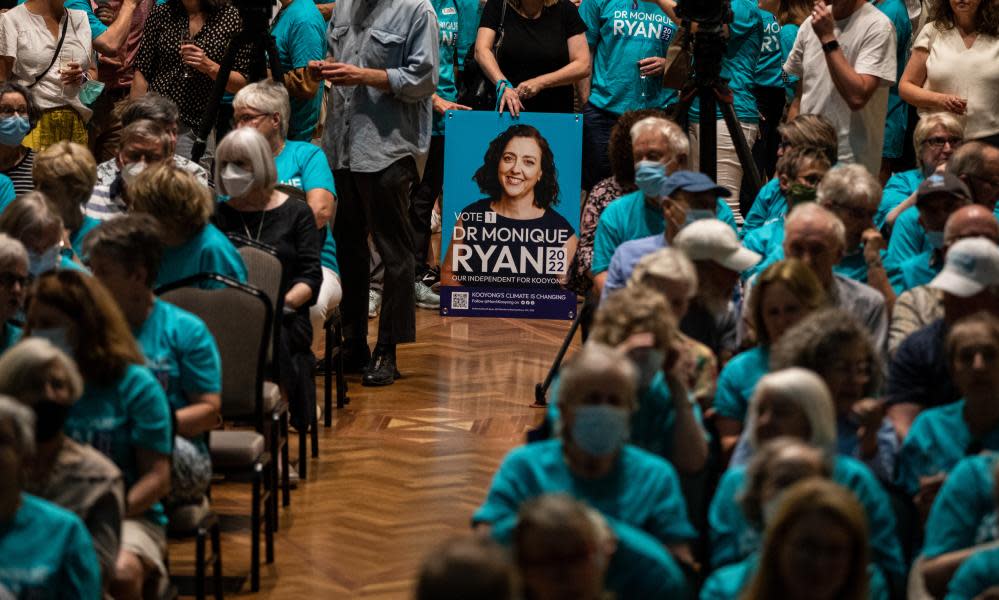‘Teal’ wave expected to spread to Victoria’s state election

The wave of “teal” independents that dislodged a swathe of “moderate” Liberal MPs in Saturday’s federal election is expected to seep into upcoming state elections in Victoria and New South Wales.
Amid record-low primary votes for federal Labor and the Coalition, the incoming independent candidates ran campaigns centred on climate action, integrity and gender issues.
Having unseated several Liberal MPs in once heartland conservative seats, Guardian Australia understands Climate 200 is likely to financially back independents in the upcoming Victorian election in November and NSW election in March.
In Victoria, the group is understood to be considering the Liberal-held marginal seats of Brighton and Kew and Labor-held Hawthorn.
Related: Teal independents: who are they and how did they upend Australia’s election?
The Liberal Party just holds 21 out of the 88 seats in the state’s lower house, with many on margins of 1% or less.
The bayside seat of Brighton, held on a wafer-thin margin of 1.1% by James Newbury, is in the federal electorate of Goldstein. On Saturday, former ABC journalist Zoe Daniel claimed victory in the seat over former assistant minister Tim Wilson.
The state seat of Kew is currently held by outgoing MP Tim Smith on a margin of 4.5% after a redrawing of electoral boundaries. It lies in the federal electorate of Kooyong – the previously blue-ribbon seat in which Climate 200-backed independent Monique Ryan ousted former treasurer Josh Frydenberg over the weekend.
On Monday, Ryan said the campaign had focused on bringing “the whole community with us” to represent the electorate’s values in Canberra.
Kos Samaras, a former Labor strategist turned pollster who conducted research for Climate 200, said the movement was likely to grow and leverage the success it had in the federal election.
“The successful independent candidates have built a movement that intends to expand and maintain its position in this part of Melbourne,” he said.
The former independent MP for the rural Victorian seat of Indi, Cathy McGowan, said the grassroots-style campaigns were responsible for the growing success of the independents movement.
“While the issue were important, it was the way of organising that worked. It was communities that got together and found they had a commonality about something,” she said.
“It grew out of the communities and it didn’t start 100% on issues, it was about representation. People said we want better representation and are prepared to work around that.”
McGowan, who in 2013 became the first independent MP for Indi, stressed that independent campaigns required a “ground swell of volunteerism.”
McGowan’s “Voices for Indi” campaign has now been replicated across Australia.
On Sunday, Climate 200 convener, Simon Holmes à Court, said the group would spend the next few days reflecting on what it had achieved and “what might happen next”
“The nation has changed as a result and we must make sure this becomes a watershed rather than a moment,” he said in a statement.

 Yahoo News
Yahoo News 
